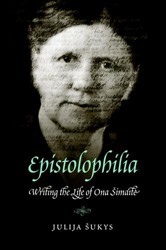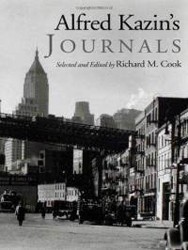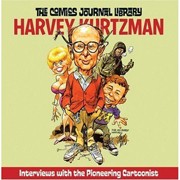Denis Guénoun compiled this biographical sketch of his father, René Guénoun, by relying on his own memories and digging through several boxes of family documents and correspondence. Along with a classic memoir about a parent, the reader gets a history of French Algeria.
A schoolteacher but also a passionate communist, the author’s father finds himself, more than once, on the wrong side of the political fence. The Guénoun family had resided in Algeria “from time immemorial,” but only his generation took on a greater allegiance to France, the colonial power. Before that, the distinction between Arab and Jew was fluid; thus, when the child narrator asks his father, early on in the narrative, “Why not live as Arabs among the Arabs?” the father answers, “Here’s why: the French came. France lifted us out of that life.” He refers to the French decree of 1870 declaring all Jews of Algeria French citizens, but not the Arabs who lived there. The father explains: “Your great-grandfather spoke Arabic. Your grandfather, Arabic and French. Me, your father, French and a little Arabic. You French only.”
In contrast, the family’s Jewish allegiance is minimal. Passover is referred to as “Easter;” circumcision as “baptism.” For a long time the father objects to his son’s circumcision until the more traditional grandmother— who also, much to the father’s chagrin, keeps contributing money to the Zionists — wins out.
When, in the aftermath of World War I, national allegiances become more pressing, the father advocates, “Equality of all. Fraternity without limits. […] The world shared by all, cleansed of religions […] And the Jews — but there will be no more Jews because Judaism is a religion and there will be no more religion.” This memoir brings to life the communist ideal that failed so terribly in the Soviet Union; the ideal that the father espouses to the very end of his life, unwilling to believe the atrocities committed in the Communist countries against all those who wanted to have their own opinion and keep their culture. When his neighbors in his Algerian hometown of Oran fight for keeping Algeria French, while the rest fights for the independence that eventually comes, the family’s position becomes untenable. Relying on his own memory, the author provides a stunning slow-motion rendering of the violent incident that makes them flee to France.
Unfortunately, this otherwise succinct memoir takes an odd turn toward the end. Instead of ending with the father’s death, the last chapters share the father’s burial, then the mother’s, and later the prosaic combination of their graves. This leaves the reader with the uncomfortable feeling of having been privy to the author’s unresolved contemplation of mortality, which is interesting in and of itself, but doesn’t quite resonate with this memoir of a worldview and a culture obliterated by history.
Related content:
Annette Gendler’s work has appeared in the Wall Street Journal, Tablet Magazine, Kveller, Bella Grace, and Artful Blogging, among others. She served as the 2014 – 2015 writer-in-residence at the Hemingway Birthplace Home in Oak Park, Illinois. Born in New Jersey, she grew up in Munich, Germany, and now lives in Chicago where she teaches memoir writing.





